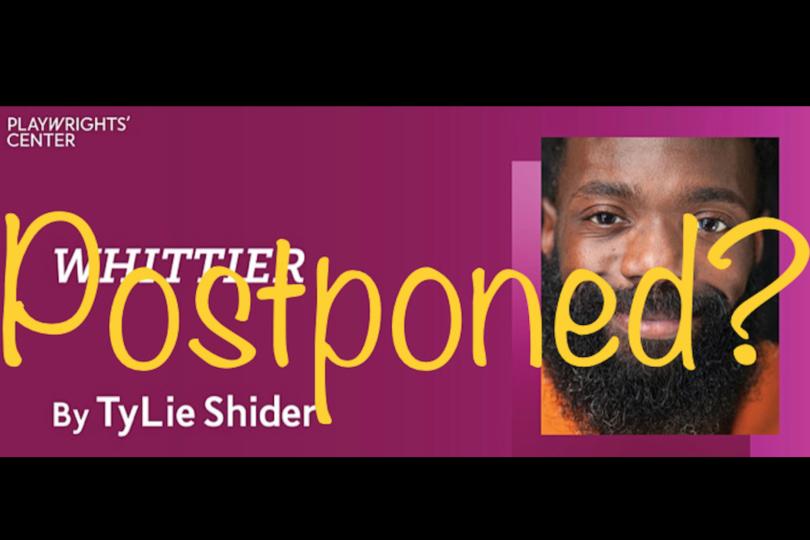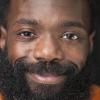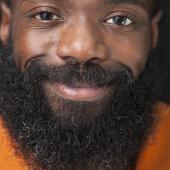We Are Going to Have to Find a Way

Today I received a phone call about the third postponement of the “in-person” developmental workshop of my play Whittier and I thought to myself, “maybe it’s time for me to write novels because my plays are stuck in a metaverse intended to protect theater-makers and patrons from a mutating virus.” Grim, I know. But while avoiding human contact is an obvious solution for reducing the spread of any contagion, especially one as nebulous and novel as COVID-19 and its variants, it is certainly the antithesis to creating theater. We are going to have to find a way to break the fourth wall, or what we call in education break the plane, plays are completed in collaboration, and “in-person” fellowship is a primitive need.
“There are walls between us we did not build.”
“Break the plane, Mr. Shider,” is what my lead teacher said to me after she sat in on a lesson I had taught from behind a podium. I grew up watching ministers and other thought leaders teach in pulpits, so naturally I felt comfortable lecturing from the podium. At the time I was teaching at a relatively young and innovative high school in Bedford-Stuyvesant, Brooklyn, and podium-style teaching from bell-to-bell was discouraged because it emphasized hierarchy and alienated certain students. A successful teacher differentiates instruction in an effort to optimally engage each learner.
This made me think of the theater and the fourth wall.
This made me think of the fourth wall in the theater and why we break it.
We break it to disrupt the status-quo.
We break it to narrate the narrative.
We break it to address the audience.
We break it to check their understanding.
We break the fourth wall to share a secret, and build a rapport with the audience.
We break it to earn their trust.
Some learners would need to trust me in order to succeed in the class. Today’s student is tomorrow’s teacher. Thus, I immediately implemented the school of thought and broke the plane.
Today I teach at the college level but I am still adamant about teaching beyond the fourth wall. However, this semester, I am teaching behind a mask. The plane I was trained to break is now a mandate. And those learners who need to build trust in order to succeed are also behind masks.
There are walls between us we did not build.
“This article is an open love letter to educators, students, theater makers, and all other members of the human race whose personal and professional viability depends on human contact beyond the fourth wall, across the plane, and outside of the metaverse.”
Part of the reason theater grips me is because it encompasses all of my literary skills: songwriting, poetry, prose, and journalism. Poetry, print-journalism, and prose are relatively intimate styles of writing. When the work is published it is traditionally consumed by an audience of one in the privacy of their home. Songwriting, like playwriting, is inherently communal. It is an invitation for collaborators to join you in the kitchen. Coming up in a tight-knit family of eight, we created art as often as we prepared meals together: music, teleplays, concerts. You name it, we tried to make it. Creativity kept us around the kitchen table like a hot meal.
When I left home at seventeen to study and become a man, the first thing I knew I would need in order to be successful was an extended-family of creatives. So, I bounced around from club to club searching for a group of like-minded people to collaborate with. Searching for belonging, I joined the campus radio station in the mass-communications department for about a semester, but my taste in “old school” music was not a hit with millennial listeners. Then I was asked to join a fraternity, but I dropped the line before hazing season. It was cool but it wasn’t me.
I was searching for me.
We all are.
We are all searching for ourselves.
College students are bombarded with flyers encouraging them to join groups. Somehow, amid the sensory overload of poster-bombs on campus, I stumbled upon an advertisement announcing an interest meeting for the DSU Theater-Dance Program. It was gearing up to produce a big musical called Dreamgirls by Tom Eyen. I attended the interest meeting to discover that the group would be advised by my theater professor and his wife, Donald and Dolores Blakey, an alumni couple who met and married as undergraduates. It was a family. It was a renaissance family like my family. And as soon as we opened auditions it felt just like home. All the talent pouring in reminded me of my siblings. We were about to sit around the kitchen table and make something.
The magic of theater is in the room.
We may no longer communicate in hieroglyphics, though some would argue that emojis are the modern symbols we use for communication, which further emphasizes how primitive and cyclical the evolution of verbal and written communication between humans has been despite recent technological advancements like email and text messaging which only expedites the delivery of something archaic. Emojis are still a system of writing in pictorial characters which is a mode of communication as ancient as cave paintings in Egypt. Which begs the question of, are we evolving or spinning in circles?.
Another primitive and psychological need is the need for affiliation, or naff. It is the need for meaningful social interactions and relationships with others. And while some of us may be higher in this need than others, it is still a universal societal force that ultimately mobilizes the economy, strengthens culture contacts, and builds community.
This article is an open love letter to educators, students, theater makers, and all other members of the human race whose personal and professional viability depends on human contact beyond the fourth wall, across the plane, and outside of the metaverse.
Below is a list of things we can do to sustain our social-health:
a. Beware of the breakdown of basic interpersonal skills such as: trading common greetings like good morning, sustaining eye-contact, and listening, etc.
b. Now with the mask mandates, we have lost the liberty to smile at a stranger in public. Which is a form of non-verbal communication that plays an integral role in lowering defenses in day to day interactions between two people or more. Therefore, remember that someone may be smiling behind their mask. And more importantly, they may be smiling at you.
c. Steer clear of hyper-criticism. We are in the era of the podcast. And every opinion has a pulpit.
d. Search for opportunities to slow down. E.g. light a candle, count your blessings …
e. Keep laughing. Find something to laugh about. Laughing is a revolutionary act.
f. This last one is a Call to Action for you to join me and add onto the list in the comments section below. What do you do to sustain your mental and social health?
Be safe. But be mindful that we are still human with very primitive needs to connect. Check out a clip of my siblings and I performing at Phelps Park last Spring.
Remnant at Phelps Field Park
From left to right: Justin (guitarist), Debra, LaShaun, Tylie, Precious, and Debaras




